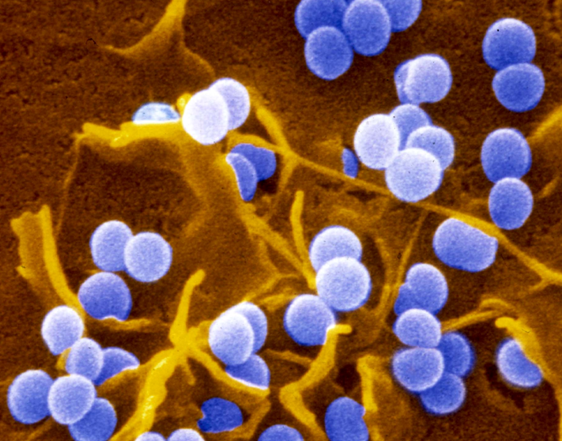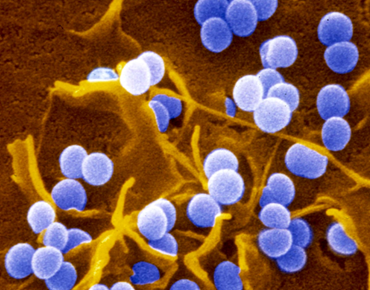NCTC strains underpin Newcastle University study of T7SS immunity genes

 The type VII protein secretion system (T7SS) is a mechanism that enables the transport of toxin substrates across the bacterial cell envelope. Found in many Gram-positive bacteria, T7SS is thought to play an important role in inter-bacterial competition in Firmicute species such as Staphylococcus aureus. The S. aureus T7SS is encoded at the ess locus, a major component of which is a co-localised array of closely-related but non-identical immunity genes (esaG) that provide protection against the toxic polymorphic effector protein, EsaD.
The type VII protein secretion system (T7SS) is a mechanism that enables the transport of toxin substrates across the bacterial cell envelope. Found in many Gram-positive bacteria, T7SS is thought to play an important role in inter-bacterial competition in Firmicute species such as Staphylococcus aureus. The S. aureus T7SS is encoded at the ess locus, a major component of which is a co-localised array of closely-related but non-identical immunity genes (esaG) that provide protection against the toxic polymorphic effector protein, EsaD.
Analyses performed by a team of researchers from Newcastle University recently found evidence suggesting homologous recombination may play a part in the evolution of ess components such as the esaG gene family. Stephen Garrett, a PhD student within the Newcastle team who discovered the recombination patterns, had previously carried out his PIPS project (Professional Internships for PhD Students) at NCTC. Knowing a recent NCTC study on 133 sequenced and assembled S. aureus strains had led to new knowledge on enterotoxin gene diversity, Stephen collaborated with NCTC to find out if the strain set also underpinned the results he had seen thus far.
Using the 31 Clonal Complex 8 S. aureus strains from this dataset, Stephen performed a range of computational analyses searching for evidence of homologous recombination at the ess locus. Even within this modestly sized dataset, he was able to infer two expansion and five loss events within the NCTC strains, likely the results of homologous recombination, which together led to three mosaic forms of the esaG gene family.
Along with additional evidence found in Streptococcus mitis genomic datasets, these results suggest homologous recombination plays an important role in enabling the rapid remodelling of the T7SS locus, including the acquisition of novel immunity genes. An article on the Firmicute T7SS study was recently published in Microbial Genomics.
Jo Dicks
September 2022
